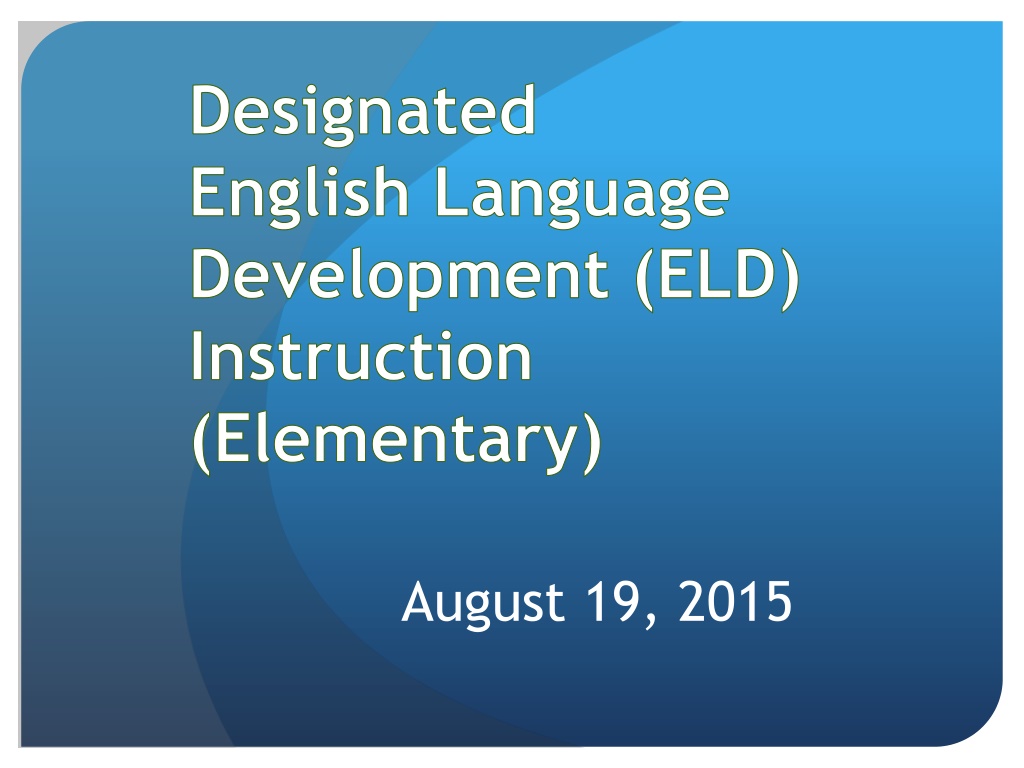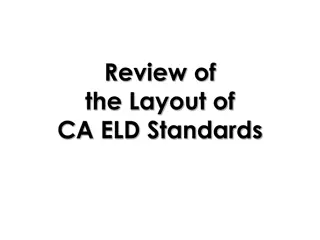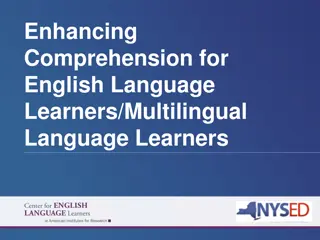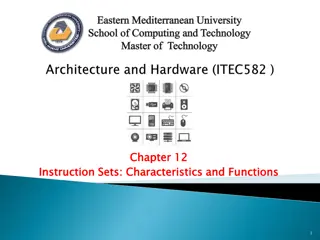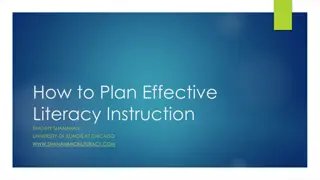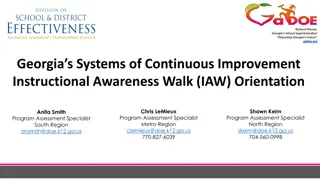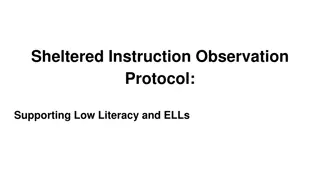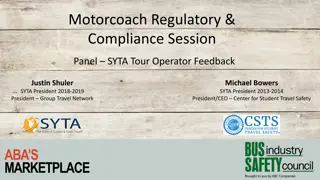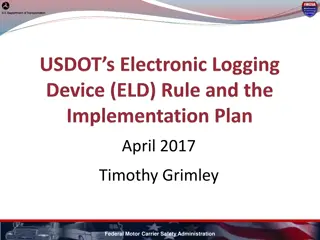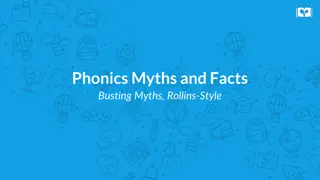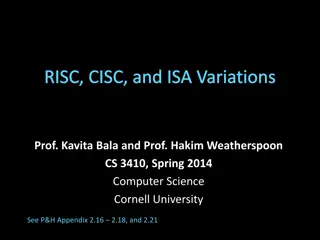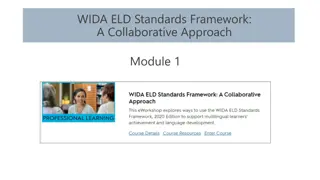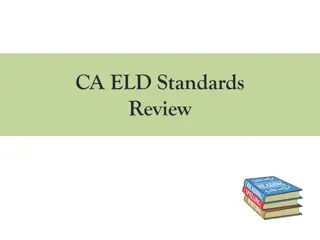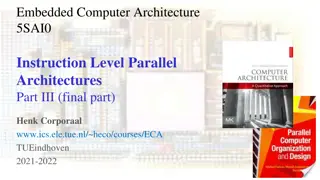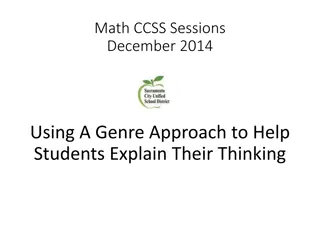Effective English Language Development (ELD) Instruction Strategies
Key areas of focus for effective English Language Development (ELD) instruction at the elementary level include providing daily rigorous instruction, developing language objectives for student discourse and academic vocabulary, and using formative assessments to guide teaching. Designated ELD time should be utilized to assess students, build oral language proficiency, and establish ELD routines at the beginning of the academic year. District-adopted materials like Treasures ELD and CA Wonders support ELD curriculum implementation.
Download Presentation

Please find below an Image/Link to download the presentation.
The content on the website is provided AS IS for your information and personal use only. It may not be sold, licensed, or shared on other websites without obtaining consent from the author. Download presentation by click this link. If you encounter any issues during the download, it is possible that the publisher has removed the file from their server.
E N D
Presentation Transcript
Designated English Language Development (ELD) Instruction (Elementary) August 19, 2015
English Language Development (ELD) is a Core Subject 1. 45 minutes in grades 1-6 and full day kindergarten; 30 minutes in half-day kindergarten. 1. The focal standards = CA ELD Standards (2012) (amplify CA CCSS) 1. Student s proficiency with academic English is the main focus of instruction.
District adopted materials: Treasures ELD Teacher s edition Practice readers (purple border) CA Wonders Content Readers(2-6) CA Wonders Big Book (K-1)
Starting the Year at the Right Pace Pacing Guide is on the Elementary ELA website During Start Smart (first 2 weeks in Grades 2-6; and first 3 weeks in K-1), use your designated ELD time to: Get to know your students Assess their oral language Practice routines for ELD Administer an informal writing task
Major Areas of Focus/Support 1. Providing daily, rigorous English Language Development (ELD) instruction. 2. Developing and citing daily language objectives that frames opportunities for student discourse (collaborative conversations) and developing academic vocabulary. 3. Using genuine formative assessments to guide instruction frequently.
Major Areas of Focus/Support 1. Providing daily, rigorous English Language Development (ELD) instruction. 2. Developing and citing daily language objectives that frames opportunities for student discourse (collaborative conversations) and developing academic vocabulary. 3. Using genuine formative assessments to guide instruction frequently.
Major Areas of Focus/Support 1. Providing daily, rigorous English Language Development (ELD) instruction. 2. Developing and citing daily language objectives that frame opportunities for student discourse (collaborative conversations) and developing academic vocabulary. 3. Using genuine formative assessments to guide instruction frequently.
Major Areas of Focus/Support 1. Providing daily, rigorous English Language Development (ELD) instruction. 2. Developing and citing daily language objectives that frame opportunities for student discourse (collaborative conversations) and developing academic vocabulary. 3. Using genuine formative assessments to guide instruction frequently.
Major Areas of Focus/Support 1. Providing daily, rigorous English Language Development (ELD) instruction. 2. Developing and citing daily language objectives that frames opportunities for student discourse (collaborative conversations) and developing academic vocabulary. 1. Using genuine formative assessments to guide instruction frequently.
Professional Development Offerings Online 1. English Learner Services Page 2. District PD Calendar
Classroom Based Support for Starting Smart with ELD Mary D. Lugton ELD Instructional Coach mlugton@wccusd.net Tracie Manipis Project Assistant Academic Intervention tmanipis@wccusd.net
